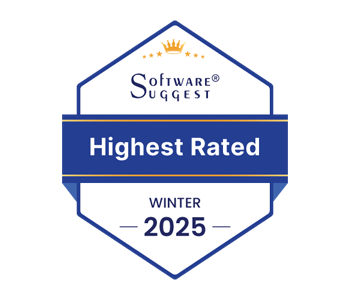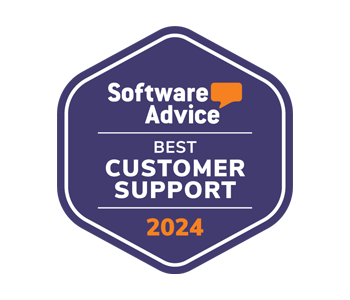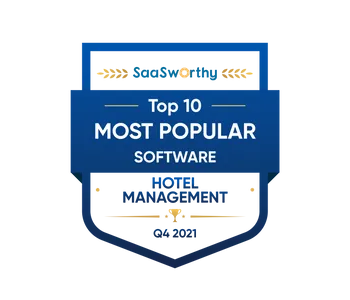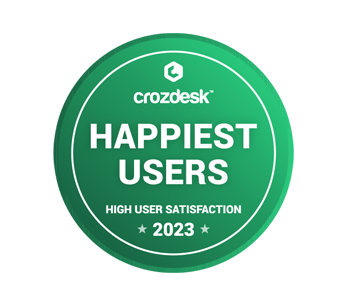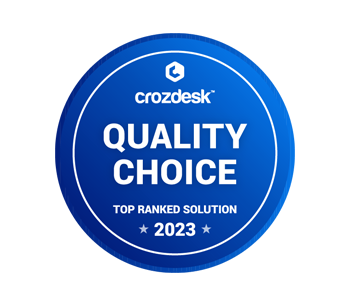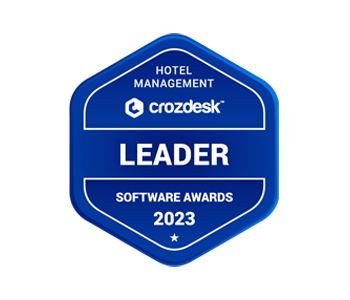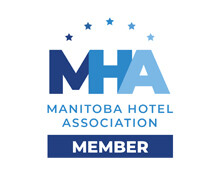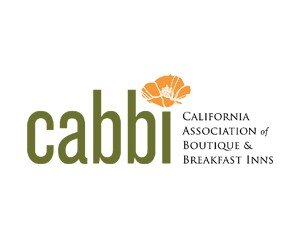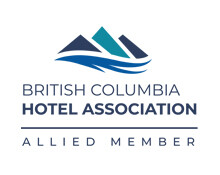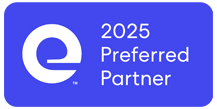2023 has arrived with plenty of innovative marketing trends on the horizon, from fresh openings in social media to shifts in SEO. This year, guests are socially and safety conscious with both the environment and Covid-19 occupying their mental space.
Here are important hotel marketing trends to help elevate your strategy and revenue this year.
Sustainability
For around 80 percent of travelers, sustainability is important to their experience, so it makes sense to introduce environmentally friendly initiatives at your hotel.
Consider using energy-efficient lighting, sourcing your food locally, and cutting down on plastic (those little shampoo bottles are the most obvious). A cloud PMS is also an asset here. Because it’s delivered online, you don’t need an onsite server sucking up energy.
Outline your sustainability efforts on your website (if you can track your carbon emissions, even better!) for guests to see. Offering this information separates the go-greens from the greenwashers.
Speaking of greenwashing…There are many environmental certifications floating around that don’t actually mean much. Research potential certification before you invest the time and money in applying. What steps do you take to reach it? If the only step is “send a check,” there are better ways for you to spend that money…like partnering with an environmental non-profit to increase your impact or starting your own initiative.
Market your staycation offerings. Staycations mean less carbon emissions. For instance, guests can take the train instead of flying. (As a bonus, they won’t have to wonder if the TSA will ever give their stuff back.)
If you’re interested in going even further and incorporating sustainability into the core of your hotel building, these hotels provide plenty of inspiration.
Whatever environmental steps you take, promote them on your website, social media, and email communications. The FAQ page on your website and your hotel blog are both excellent places to slip in this information and optimize your SEO.
Diversity
There’s a broad spectrum of travelers out there, and they’re more likely to come to your hotel if you represent them in your content. Seeing a website full of people, none of whom resemble you, is a barrier.
A little under half of LGBTQ+ travelers surveyed by MMGY claimed that seeing themselves depicted in marketing would give them more confidence that where they’re going is inclusive. These travelers are also usually on the younger side with an average age of 39.
And they’re not the only diverse travelers from younger generations. As of 2018, 48% of Gen Z and Gen Alpha in the United States belong to a racial or ethnic minority. With more and more of these generations entering the workforce and earning money for travel, it makes sense for your marketing to reflect what they care about.
You should also consider guests’ accessibility needs; one quarter of Americans and one fifth of Canadians have a disability. Think beyond wheelchair ramps to other accommodations such as adjustable website font, closed captioning, and celiac/allergy-friendly dining options. Remember that most disabilities are not visible. Make accessible accommodations and amenities clear on your website, so guests with disabilities know what to expect.
The implicit inclusivity promised in your marketing should always be followed up with a warm welcome once the guest arrives.
Social Media
Social media is more than just your premier source of cat videos and dorky dance moves; it’s also where travelers go when they’re searching for new places to visit. According to Expedia, a little over a third of travelers look to social media for inspiration. This varies by demographic with a full half of travelers under 40 hunting for inspiration there.
With a plethora of platforms available and racing to imitate each other’s most popular features, it can be hard to decide where to put your time and energy. Hootsuite’s marketer survey for 2023 claims that only 18% of marketers create entirely new content for each platform (instead of reusing the same post with minor to significant changes for each platform)—but those are the marketers with the most confidence in their content and therefore see better results. If you decide to invest the time to create a new post for each network, you obviously cannot post on every network (there are only so many hours in the day). Pay attention to your hotel’s long-term business strategy instead of chasing every viral trend.

Facebook may be old and filled with your uncle’s cringe-worthy political memes, but it’s still the most popular network out there with 2.9 billion users. It’s worthwhile to have a presence on this one.
Keep in mind that most users go to multiple networks—almost 88% of Twitter users visit Instagram as well. The difference is what they’re on a particular network for. Where does your hotel fit in? Twitter is used to follow current events, while people engage with Instagram to post and share videos and to research brands (which is a positive for you).
Instagram is fabulous for sharing those white-sand beach pictures, but you should experiment with reels and videos there too. Engagement for static photos actually went down by 44% since 2019 (around about when reels came on the scene).
Influencer Content
According to Hootsuite, larger businesses are reducing their spending on creators / social media influencers, which leaves a gap for smaller businesses to enter the market. A creator may be within your range as an independent hotel, if you choose. Cost per post is usually under one hundred dollars (US).
However, before working with an influencer you should carefully consider that influencer’s reach and audience. Be on the lookout for bought followers. The type of follower also matters. If most of your guests are workcationers, it doesn’t make sense to hire an influencer whose primary audience is stay-at-home parents.
User-Generated Content
Working with influencers isn’t right for every business. Paying people to post about how amazing your hotel is may cut down your credibility, so find and promote your fans that aren’t getting paid.
This trend is here to stay with 81% of travelers always or often reading reviews before booking accommodation. If you don’t have many reviews or guests posting on social media, ask. It’s a good idea to send an email review request three to seven days after your guest leaves the hotel.
You can also encourage guests to post about your hotel on social media in exchange for a small perk like a free mocha from your cafe. The catch here is that you can’t control what they post, so make sure everything at your hotel is on point.
Videos
Instagram isn’t the only place videos are in style. In 2022, approximately two thirds of consumers used video content to find product or brand information.
Familiarize yourself with different video formats before you post. A TikTok video format isn’t ideal for your website or even an Instagram reel. Not only will the aspect ratio of the video change from platform to platform, but the audience may as well. Consider your demographic before you press share. Whatever the format or platform, make sure your videos are high quality and to the point; under three minutes is best.
Many hotels now offer virtual reality tours on their websites, giving guests a more immersive experience of your rooms before they book. Think about your brand when you create these. Do you offer exciting nightlife? Laid-back family fun? You don’t have to limit virtual tours to your guestrooms only.
Voice Search
Not everyone types their search queries into Google anymore. In fact, around two thirds of US adults use a voice-operated assistant, and that number rose 7% during the pandemic. Because voice queries are phrased differently and made under different circumstances, i.e., while someone is driving, you need to adapt your SEO strategy.
Most voice searches are local, so make sure your SEO is optimized that way. Your name, address, and phone number (NAP) should be the same across all platforms, your Google Business Profile should be filled out, and you should offer local information on your website. For instance, you could recommend nearby restaurants on your blog. Finally, your website needs to be mobile friendly as the majority of voice searches are done on the go.
NFTS
When most people think of NFTs, they think “wait, what are those again,” but there is a $946 million market to consider once you get past the head-scratching stage. Simply put, NFTs are digital assets that can be bought and sold online but have no physical form. A meme can be an NFT as can a piece of music.
Hotels like Marriott and citizenM are moving in on these as well with travel-inspired digital art. It’s another way of promoting your brand online, particularly if you are marketing to younger audiences (ages 18-34). Guests can even exchange NFTs for real-world benefits such as loyalty points or cash.
First-party Data
First-party data is data that you gather yourself rather than data you purchase from another company. With Google preparing to phase out cookies in 2024, first-party data will become increasingly important. Why not get a head start?
Use your customer relationship management system (CRM) and your property management system (PMS) to collect and store first-party data. This data can come from multiple sources, including social media, email inquiries, your booking engine, and face-to-face conversations.
Ask your guests about themselves before they arrive, though try not to pack too many questions into the booking process itself. If that gets too complicated, guests will abandon the booking. Use pre-stay emails for this instead. “Do you have any special requests?” is a good place to start.
Chatbots
Install a chatbot on your website to answer your guests’ simpler questions. They shouldn’t have to phone you to find out if your hotel Wi-Fi is free. Chatbots save time for your staff and enable guests to get answers even outside business hours when people may not be available.
Safety
It may be post-pandemic, but guests still want to know what you’re doing to prevent them from contracting Covid-19. Post this information on your website, social media, and even in the lobby where guests can easily see it.
A property management system (PMS) like WebRezPro comes with housekeeping software, including housekeeping checklists, to help you deliver your service promise.
Marketing—and the technology we use for it—is constantly evolving. Educate yourself and keep an eye on the latest trends, but don’t necessarily adopt any fad that comes your way. If you’re a boutique bed and breakfast that relies on its old-fashioned charm, those NFTs may not make sense. Be judicious and choose the opportunities that best align with your long-term strategy.










